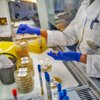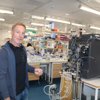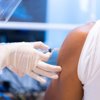Fritextsökning
Artiklar per år
Innehållstyper
-

The Swedish Research Council gets go-ahead for more long-term funding
Following a government decision, the Swedish Research Council will soon be able to approve ten-year grant periods for funding research infrastructure, which may affect the giant Max IV project, among others.
-

Raised millions to develop a treatment for ´butterfly children´
Fragile as a butterfly’s wing – that’s how people living with Epidermolysis Bullosa are usually described. The Lund-based company Xinnate recently raised SEK 100 million in a new share issue to finance the development of a treatment they hope will give
-

Samuel Lagercrantz: ”Drömmen blev en mardröm för life science-entreprenören”
En hyllad forskare och entreprenör i Västsverige tvingades lämna bolaget han själv grundat. Fallet har väckt stort intresse bland Life Science Swedens läsare. Samuel Lagercrantz, chefredaktör för Life Science Sweden, kommenterar fallet.
-

Danska life science-industrin står för rekordhög export
Den danska exporten av life science-produkter har ökat explosionsartat, med en tillväxt på 227 procent sedan 2008 och utgjorde 2023 så mycket som 19 procent av landets totala varuexport.
-

Rising interest in CRISPR treatments
Treatments using CRISPR technology are emerging as one of the hottest medical trends in the United States – and the FDA is doing its best to promote the development.
-

Decades of research destroyed at KI – a hacker attack cannot be ruled out!
Years of research, together with half a billion Swedish krona, went up in smoke when the freezers at Karolinska Institutet overheated. The breakdown has now been reported to the police.
-

Anna Törner: “My quantified life”
“The expression ‘you can’t see the forest for the trees’ feels newly relevant in the context of wearables. One can easily get caught up in the idea that the more we measure, the more we know,” Anna Törner writes in a column.
-

Study: Popular diabetes drug may be effective against liver disease
After its success in diabetes and weight loss, a new potential therapeutic area has been identified for Ozempic and other GLP1 analogues. A new study links the drug type to a reduced risk of liver damage.
-

Byggstart för svenska innovationsklustret – fördubblar sin yta
Nu tas första spadtaget för Goco Active Lab, ett nytt nationellt center som ska stärka svensk life science.
-

Niklas Blomberg ny vd för europeisk organisation inom life science
The Innovative Health Initiative (IHI) utsåg i juni förra året svensken Niklas Blomberg till ny vd för organisationen. Tjänsten påbörjade han nu vid årsskiftet.
-

Acquisition of consulting company Key2Compliance
The Swedish company Key2Compliance, offering services in fields such as pharma and Medtech, has been acquired by German GBA Group.
-

Major investment in women’s health – for a more equal healthcare system
”The regional differences need to decrease and the long-term supply of midwives and other professions needs to be secured,” write Acko Ankarberg Johansson and Désirée Pethrus (both Christian Democrats), in an opinion article.
-

A new special edition and a new event in Copenhagen – This is happening at Life Science Sweden 2024
The new year brings new features for the readers of Life Science Sweden.
-

The International Vaccine Institute’s office in Sweden is expanding
The International Vaccine Institute’s Stockholm office has been open for over a year. During the past year, training programmes and projects have been launched, says Anh Wartel, Head of the office.
-

Samuel Lagercrantz: We are currently seeing medical breakthroughs in these areas
Samuel Lagercrantz, Editor in Chief of Life Science Sweden, lists three medical fields in which we are currently seeing major breakthroughs and two fields in which we can see some long-awaited positive developments.
-

Mathias Uhlén’s protein atlas is recognised as a global resource
The Human Protein Atlas is the first database in Sweden to be designated a Global Core Biodata Resource. According to Mathias Uhlén, this is a quality hallmark and an opportunity for additional collaborations.
-

Chat GPT gav fel svar och hittade på referenser
Enligt en ny amerikansk studie kan Chat GPT vara farlig att vända sig till med medicinska frågor. Men att den hajpade chattboten hittar på egna fakta förvånar inte läkaren och AI-profilen Max Gordon.
-

A vaccine the world is waiting for: “It can change the lives of many”
A Solna laboratory is developing a vaccine that could save the lives of countless children in low- and middle-income countries. “Working on something that can make a difference for many people is important to me,” says Christine Hägglund, Laboratory
-

Business Sweden: “Companies have a lot to offer in data-driven precision medicine”
Data-driven precision medicine can potentially solve major healthcare problems, states Business Sweden in a new report on the subject.
-

Petter Hartman: ”Uppenbart att något måste göras på systemnivå“
Kostnaderna för svensk hälso- och sjukvård har ökat kraftigt de senaste decennierna och prognoserna tyder inte på att något trendbrott är att vänta framöver. Hur ska vi klara finansieringen av framtidens vård? Ett svar på frågan är ökade investeringar i prevention.
-

Ett vaccin som världen väntar på: ”Kan ändra livet för många”
I ett laboratorium i Solna utvecklas ett vaccin som, om allt går i lås, kan rädda otaliga barns liv i låg- och medelinkomstländer. ”Det är viktigt för mig att jobba med något som kan göra skillnad för många”, säger labbchefen Christine Hägglund.
-

The art of building a biologic drug
The first biosimilar from Xbrane Biopharma was launched earlier this year, and several more are under development at the company’s facility in Solna, Sweden. “We do everything in-house ‒ from DNA fragments to a final process,” says David Vikström, Chief
-

Study: Vaccination linked to lower risk of post-COVID
The risk of developing post-COVID after a COVID infection was reduced in vaccinated people, according to a new study from the University of Gothenburg.
-

The Swedish innovation model: “There is a paradox”
It is often said that Sweden is strong when it comes to innovation, but how well are we turning that innovation into actual medicines?